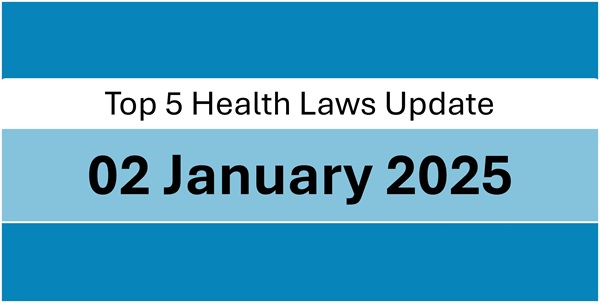Dear Readers, we are happy to share the most interesting legal and policy updates concerning health industry that we read today. we hope you enjoy reading it.
1. The Karnataka health department has become the first state to implement the Supreme Court’s 2023 directive on a patient’s right to die with dignity. The government issued an order appointing medical experts to a secondary medical board to determine when life-sustaining treatment can be halted for terminally ill patients.
Source: bit.ly/3CEYPlX
2. Central government of India has published amended Water Pollution Guidelines to streamline the process of obtaining consent for industrial plants that may cause water pollution with an aim to simplify compliance and enhance ease of doing business for industries. The guidelines outline procedures for obtaining, renewing, and potentially losing consent to establish or operate such plants. These guidelines exempt certain category of project from obtaining the clearances. It also states that the projects that required the Environmental Clearance (EC) as per Environmental Impact Assessment (EIA) Notification, 2006 are exempted from obtaining the Consent to Establish (CTE) separately.
Source: bit.ly/3WOVyaK
3. India’s National Medical Commission (NMC) thereby upholding the patients’ rights is considering to authorize the patients to appeal against the orders of State Medical Commission (SMC). Earlier, only doctors were authorized to file an appeal against the decision of SMC.
Source: bit.ly/4grUoZq
4. The Indian Council of Medical Research (ICMR) and the Central Drugs Standard Control Organization (CDSCO) are working together to improve the accuracy of In-Vitro Diagnostic (IVD) tests in India. They have released a draft manual for Standard Performance Evaluation Protocols, inviting stakeholder comments. These protocols outline methods for evaluating the performance of IVDs used to diagnose diseases like Chikungunya, Dengue, and Zika. After the consultation period, ICMR and CDSCO will review the feedback and finalize the protocols for official adoption.
Source: bit.ly/3QhIAyF
5. Major drug manufacturer in India has received approval from the Subject Expert Committee (SEC) of Central Drugs Standard Control Organization (CDSCO) to import and market tislelizumab injection, a cancer treatment drug. SEC waived the local clinical trial requirement under certain conditions, recognizing the drug as an orphan drug for an unmet medical need in India. Noting its approval in the USA, Europe, UK, Australia, China, and other countries, the committee also advised the company to submit safety and efficacy data for Indian patients, ensuring patient rights are considered.
Source: bit.ly/4hHyKSi


